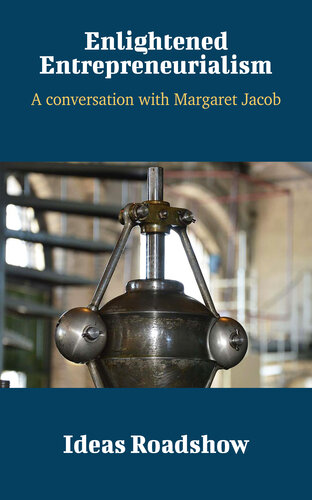

Most ebook files are in PDF format, so you can easily read them using various software such as Foxit Reader or directly on the Google Chrome browser.
Some ebook files are released by publishers in other formats such as .awz, .mobi, .epub, .fb2, etc. You may need to install specific software to read these formats on mobile/PC, such as Calibre.
Please read the tutorial at this link: https://ebookbell.com/faq
We offer FREE conversion to the popular formats you request; however, this may take some time. Therefore, right after payment, please email us, and we will try to provide the service as quickly as possible.
For some exceptional file formats or broken links (if any), please refrain from opening any disputes. Instead, email us first, and we will try to assist within a maximum of 6 hours.
EbookBell Team

4.8
74 reviewsThis book is based on an in-depth conversation between Howard Burton and Margaret Jacob, Distinguished Professor of History at UCLA. Topics examined during this extensive conversation include Margaret Jacob's motivations to become a historian and her comprehensive analysis of the history of the Industrial Revolution and interpretation of the major economic motivations on the ground, comparing daily life experiences in England, France, Belgium and the Netherlands. A sophisticated understanding of the past naturally involves a composite approach that marries economic motivations with associated cultural factors of educational trends, religious influences and scientific and technological awareness, and more.
This carefully-edited book includes an introduction, Measuring Motivations, and questions for discussion at the end of each chapter:
About Ideas Roadshow Conversations Series (100 books):
Presented in an accessible, conversational format, Ideas Roadshow books not only explore frontline academic research featuring world-leading researchers, including 3 Nobel Laureates, but also reveal the inspirations and personal journeys behind the research. Howard Burton holds a PhD in physics and an MA in philosophy, and was the Founding Director of Canada's Perimeter Institute for Theoretical Physics.